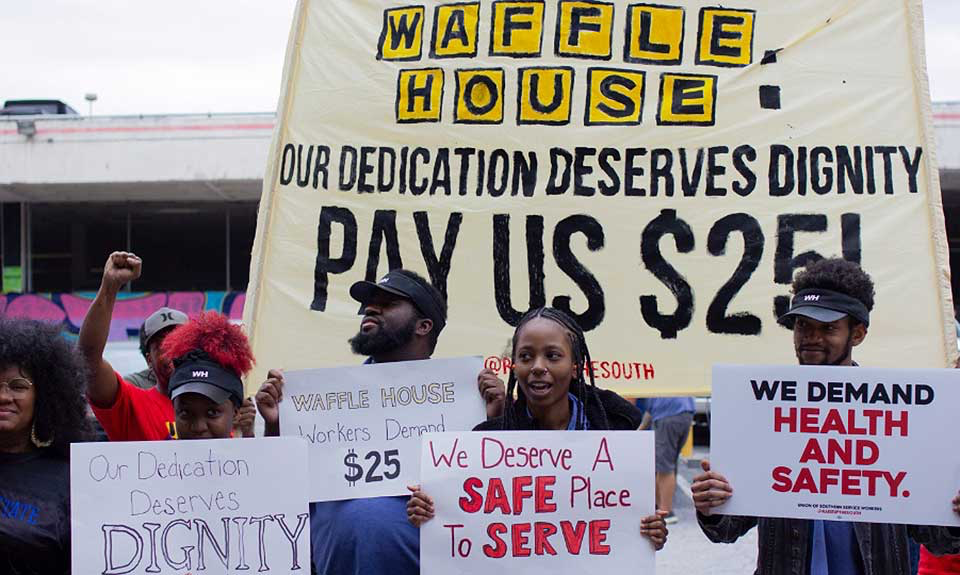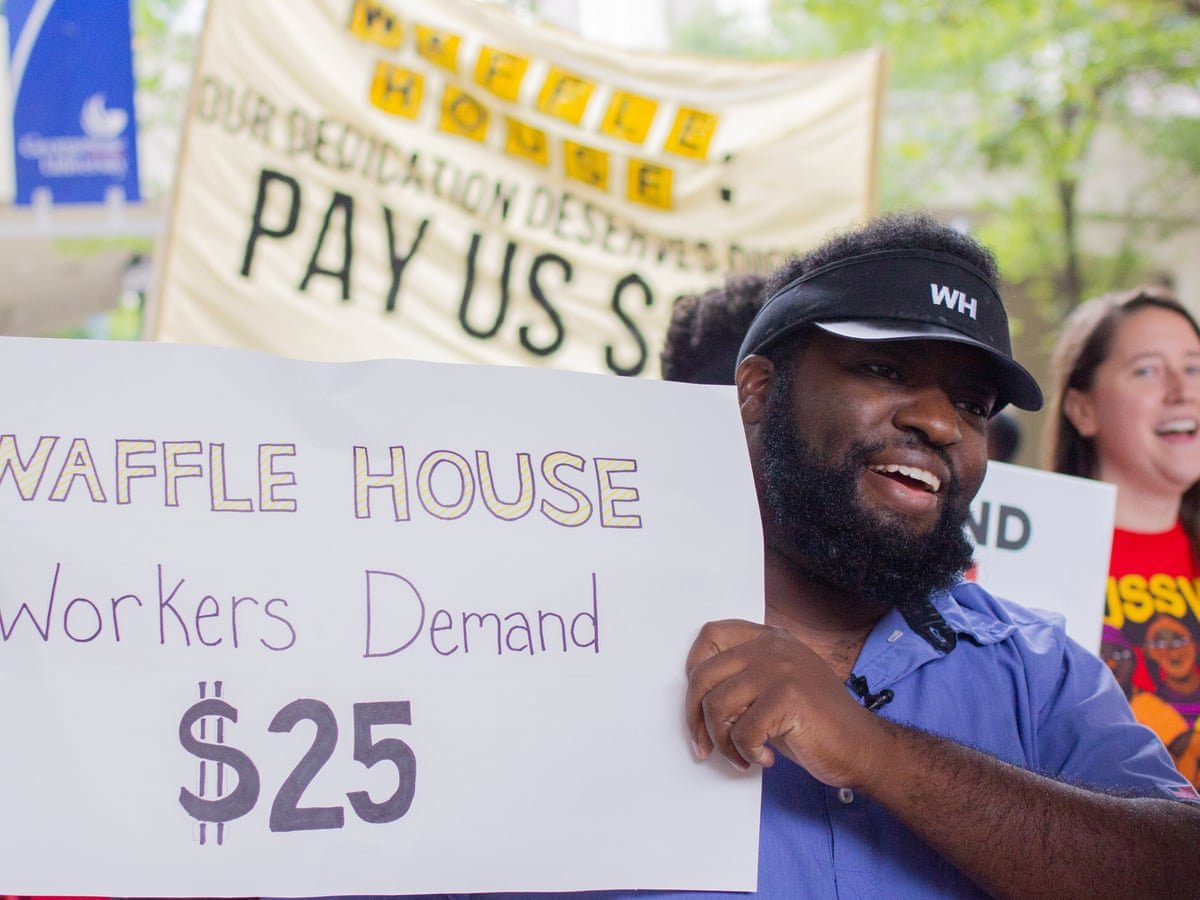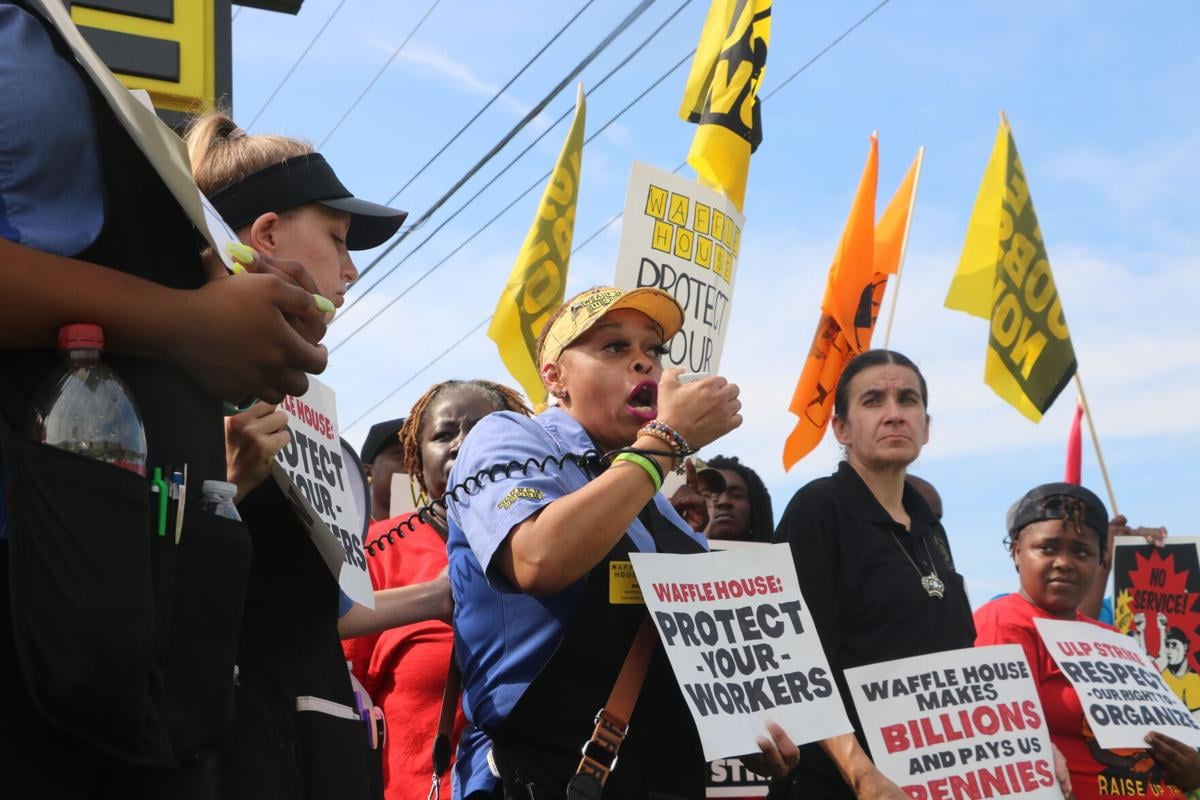Waffle House plans to increase pay for servers across the country over three years. This is a move dubbed as a “massive” investment by CEO Joe Rogers III.
The pay boosts, funded by menu price hikes targeted at stores in areas with high costs of living, aim to raise base wages for servers. These are servers who have long relied on tips to supplement their meager hourly earnings.
Addressing the Regional Disparities or Perpetuating Them?

The pay plan outlines three tiers: base pay reaching $5.25 per hour in two years, $6.25 in two and a half years, or $7.25 in three years. Workers in states with higher minimum wages, like Florida and Colorado, will see even larger increases.
But critics question whether this approach truly bridges the gap between regions or merely reinforces existing disparities. The tiered system raises concerns about the potential perpetuation of inequalities, with some workers continuing to struggle even after the pay raises take effect.
Longevity Bonuses and Shift Premiums at Waffle House

To reward long-term employees, the plan includes pay differentials and shift premiums. Servers will receive bonuses ranging from 50 cents per hour after three years to a maximum of $3.20 per hour after 30 years.
Some argue that they merely serve as Band-Aids, failing to address the root causes of low pay and financial insecurity. The question arises: are these incentives a genuine effort to retain talent, or do they merely mask the deeper issues plaguing the industry’s compensation models?
Are Workers’ Cries Being Heard or Falling on Deaf Ears?

Server Cindy Smith acknowledged the raise as a “win” but declared it “still not enough.” After 30 years with the company, she earns $2.92 per hour before tips, struggling to make ends meet and provide for her family.
Are their cries for change being truly heard? The way companies like Waffle House respond to these voices could shape the industry’s future.
Will It Bring Lasting Change or Temporary Concessions?

Katie Giede, another server, credits the pay raise to worker activism, stating, “Organizing gets things done.” She recounts strikes, demand letters, and sustained pressure that forced the company to acknowledge their demands.
The fight continues for a living wage and better working conditions, with Giede and her colleagues vowing to “keep applying pressure” until substantive changes are implemented.
The Meal Deduction Controversy at Waffle House

Giede and Smith have urged Waffle House to drop mandatory meal deductions. Workers pay for on-shift meals, even if they don’t eat them.
The Union of Southern Service Workers has sought a Labor Department investigation into this practice. Are these meal deductions a legitimate practice?
Justifying the Unjustifiable or Legitimate Concern?

Facing criticism over the meal deduction policy, CEO Rogers defended the practice, arguing that it provides good value for workers. However, his assertions have been met with skepticism from advocates and workers alike.
The question arises: is Rogers genuinely concerned about the well-being of his employees? Or is he simply defending a corporate policy that prioritizes cost-cutting over fair compensation?
Adapting to a New Reality or Exploiting a Crisis?

The COVID-19 pandemic forced many restaurants to increase wages to retain workers, as the industry grappled with labor shortages and shifting consumer demands. Waffle House now faces pressure to balance higher prices with customer expectations.
Critics argue that companies are exploiting the crisis to justify wage stagnation and pass the burden onto consumers. Is this a genuine effort to adapt, or a thinly veiled attempt to preserve the status quo?
Menu Price Hikes at Waffle House

To offset the pay increases, Waffle House plans to raise menu prices, particularly in urban areas with higher costs of living. Rogers acknowledged the challenges in rural areas, where competitors’ prices may limit price hikes.
While this approach attempts to account for regional variations, critics argue that it merely reinforces existing inequalities and serves as a smokescreen for corporate greed.
The Long Road Ahead for Waffle House Workers

Despite the pay raise, workers like Giede vow to “keep applying pressure” for further changes.They recognize that the battle for fair wages and better conditions is far from over.
This unwavering determination has inspired hope among advocates and workers alike, but it also raises questions about the feasibility of their goals. Is this a testament to the perseverance and resilience of the workforce?


